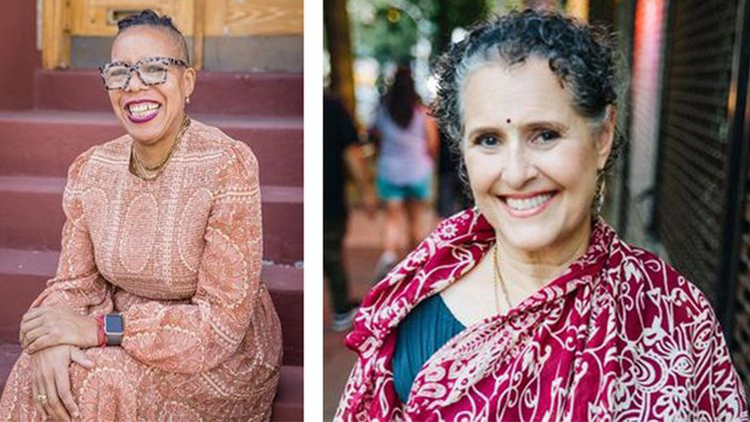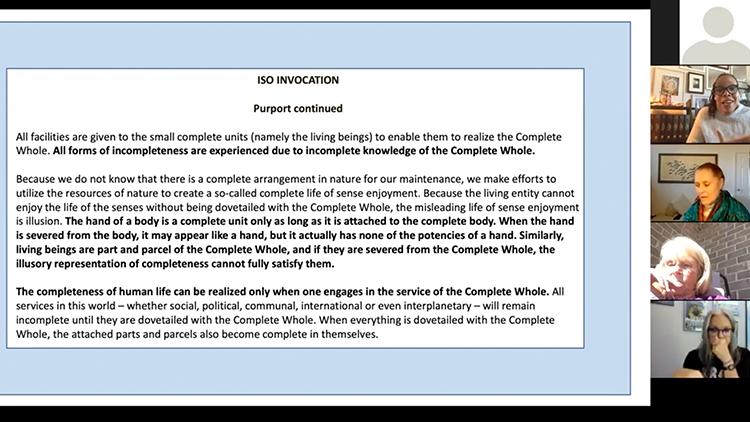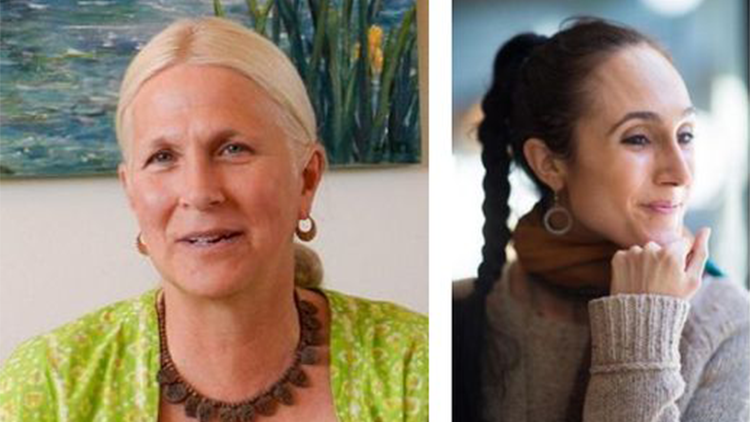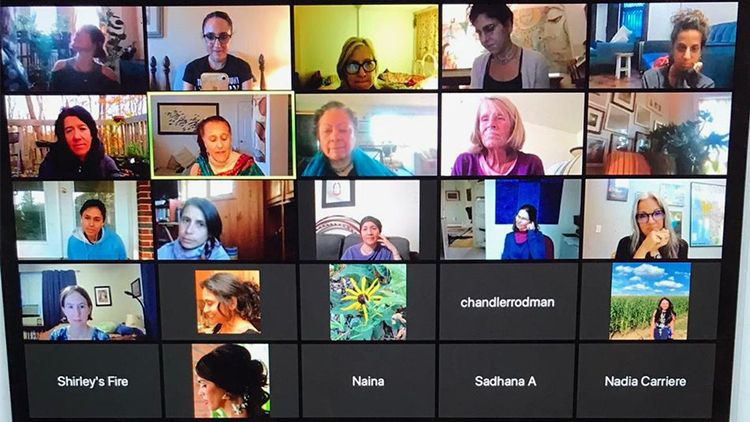Women Welcome Transformation at Urban Devi Autumn Retreat
By Madhava Smullen | Ноя 07, 2020

Around forty-five women from Sweden, Switzerland, Brazil, Chile, and across the U.S. and Canada attended the fourth annual Urban Devi Retreat on October 17th, entitled “Welcoming Transformation” and held virtually on Zoom.
Co-hosted by Urban Devi and the Bhakti Center in New York City, the inspirational all-day event ran from 7:30am to 5:30pm EDT. It was organized by Urban Devi founder Rukmini Devi Dasi along with Brajarani Devi Dasi, Lila Devi Dasi, and Champakalata Sakhi Devi Dasi, who all co-organize the ongoing Urban Devi monthly women’s sanga.
“Urban Devi is a community of women who gather in New York City – and now online – to explore and excavate their identities as urban women living a spiritual life,” explains Brajarani Devi Dasi, who worked as an HR professional in the corporate world for the last thirty years and recently started her own coaching and hypnotherapy business.
She adds: “It’s about women acting in the world to uplift others, and to shift consciousness of others around them to a higher place of love in action. And it’s dedicated to hearing and seeing the beauty of women in the Bhakti community within the context of modern city life.”
Because Bhakti is defined as “devotional service,” and people across other spiritual traditions also perform devotional service to God, Urban Devi is home to not only Krishna devotees, but also women of various different spiritual paths.

Annual retreats were previously held in person; when COVID hit, however, this year’s moved online. “That provided an opportunity for people who wouldn’t ordinarily be able to come to a weekend retreat in a specific place to be involved,” Brajarani says.
According to the retreat’s promotional materials, Autumn represents maturity, change, preservation, reconnection, and balance. The Urban Devi Autumn Retreat began at 7:30 on Saturday morning with “Transformation through Awareness: A Yoga Adventure” led by Lila Devi Dasi, a Hatha Yoga instructor since 2011.
“Through the practices of conscious awareness, gentle asana, and basic pranayama, we tapped into our ability to acknowledge our experiences, without judgement or avoidance,” she says. “So that we could ‘digest’ them in a healthy way, retaining the useful and releasing what is toxic, and thus gain the opportunity to experience growth without stagnation.”
The next workshop, “Autumn: A Time to Pause and Check In With Ourselves,” was led by Rambhoru Devi Dasi, a Srila Prabhupada disciple, Director of St. Camillus Center for Spiritual Care: Urban Interfaith Chaplaincy Clinical Pastoral Education program, and Founder/Director of ISKCON Karuna Care Education.

Presenters Rambhoru Devi Dasi and Champakalata Sakhi Devi Dasi
Autumn, Rambhoru explained, is a time to pause, check-in and do the hard work of letting go as we anticipate who we are becoming as spiritual beings having a human experience. In her workshop, Rambhoru shared insights on life-cycle stages, rallying our resources and being generative at the end of life, as well as some practical tools.
In “Nurturing Wisdom in Change,” Vrajalila Devi Dasi, a counselor and certified trainer in Conflict Resolution, Mediation, and Non-Violent Communication, looked at “the natural and spiritual cycles of life which often transition us through phases of change that are difficult, inevitable, and yet manageable.” In addition Vrajalila explored a story of transformation and change from the wisdom of a mother and son relationship – Suniti Devi and Dhruva Maharaja – as told in the Srimad-Bhagavatam.
“Vrajalila’s workshop also featured breakout groups, which were nice because they enabled the participants to interact with each other,” Brajarani says. “If we’d been in person, we would have had a lot of personal interaction, but when you get online you lose that. So the breakout groups worked really well in adding that personal element.”
Meanwhile in “Sastra Siesta,” Brajarani used the Sri Isopanisad as a manual for transformation. “I particularly focused on the invocation, and how in the midst of all this talk of transformation, we should accept ourselves in our hearts as ‘perfect and complete’ units, particularly when we are aligned with Krishna,” she says.

Forty-five women from around the world participated
Next, Rukmini Devi Dasi, a renowned speaker and one of Srila Prabhupada’s first disciples, followed with a workshop entitled “Finding Deeper Grounding in the Roots of Bhakti.” The workshop took a look at the foundational roots of a personal Bhakti practice, and asked, “How can we strengthen those roots to help us build an authentic life in our journey toward sacred love?” It also offered a practical guide for creating a daily spiritual practice.
Finally, Champakalata Sakhi Devi Dasi led a dance workshop entitled “Soul Dance: Shedding the Leaves of our Tree to Realize Our True Selves,” which required no prior dance experience. Beginning with a joyful dance and yoga warm-up, the session was a guided dance journey “to experience the season of Autumn, and how it relates to shedding external layers of ourselves that we identify with to realize our true selves.”
All in all, the Urban Devi Retreat was received enthusiastically by participants as a soulful experience that left them with practical tools and gave them a moment to take care of themselves.
“I was so honored to have been with you all,” one participant wrote. “It’s important to have Vaishnavi friends you can share your heart with.”
“I’m deeply touched by the retreat, the loving kindness of all the presenters and participants,” another shared. “Wishing today would have kept going.”
“Being physically isolated, this is something that I needed,” one participant wrote. “Truly rejuvenating.” Another commented, “It was very heartwarming and empowering to connect and listen to all of you.”
“There are many women who feel very isolated, and they speak about that,” Brajarani says. “They’re looking for sanga with likeminded women, where they can learn practical principles to apply in their daily life. And beyond the retreat, they can become part of the ongoing Urban Devi sanga, where you develop a connection, and see the same people month after month. What’s more, since we’ve gone online, we’ve been able to have a lot of Srila Prabhupada’s daughters come and speak with us; and that has been really, really beautiful.”















